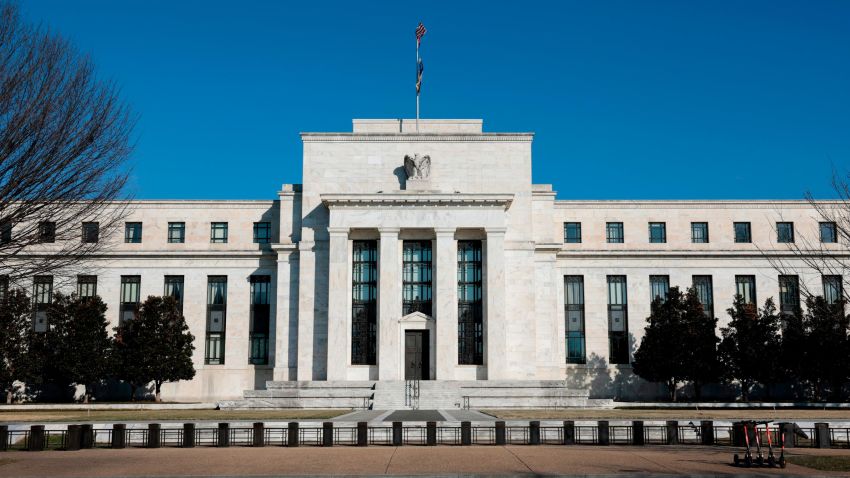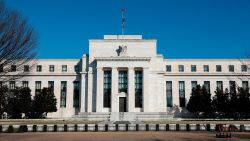A version of this story first appeared in CNN Business’ Before the Bell newsletter. Not a subscriber? You can sign up right here. You can listen to an audio version of the newsletter by clicking the same link.
Ferragamo belt-buckles are being tightened across Wall Street as bankers prepare for a gloomy bonus season. Year-end payouts, typically an outsized part of total financial industry compensation, are expected to plunge as merger and acquisitions dry up, inflation persists and recession threats grow.
What’s happening: Bankers who help consolidate companies could see their bonuses fall by about 20% this year while those who help companies raise new capital could see that paycheck drop by 45%, according to a new report from compensation consultancy Johnson Associates. Those numbers are adjusted for inflation.
“This year is abnormally bad,” said Alan Johnson, managing director of Johnson Associates. “I think there will be a fair number of unhappy people. Some people will look for other jobs… But there will be layoffs, too.”
The report, which is compiled through an analysis of economic data and consultation with the largest banks and hedge funds, found that hiring is expected to slow significantly and that layoffs will begin as the threat of recession increases the pressure on employers to cut costs.
Why it matters: While bankers may be put out by the news, others may feel some schadenfreude. An early-career salary in the industry comes in at around $200,000 pre-bonus, afterall. But Johnson says you should be concerned by the news even if you don’t work in finance.
Some people may think brokers make too much from home sales, he said, but they still want houses to sell because that’s good for their community, said Johnson. The same is true of bankers, he added.
Dealmaking is typically indicative of a healthy economic environment.
“This is a canary in the coalmine for the economy, if the canary dies that’s not good for anybody,” said Johnson.
A larger problem: M&A deal volume slowed significantly in 2022 as dealmakers contended with rising interest rates and a possible recession.
Global M&A volume was $642 billion in the third quarter, according to Refinitiv. That’s a 42% drop from the prior quarter and the lowest volume for that period in a decade.
The M&A market is a leading economic indicator, said Morris DeFeo, chair of the Corporate Department at Herrick, Feinstein LLP, a law firm that specializes in M&A. “I think a lot of the slowdown [in M&A] was in anticipation of a [shaky] economy.”
What’s next: Lackluster performance bonuses could end up kicking banking activity back into gear, said DeFeo. “There are a lot of people who are very motivated by incentives on both the financing side and the strategic side to see things move forward,” he said. “We’re not going to sit back and wait to see where things go. That’s not the nature of our financial business community.”
Still, it’s unclear whether the industry can overcome market trends like the higher cost of borrowing. While analysts expect a slight rebound in 2023 — they still expect banking activity to remain relatively weak.
Good news on the inflation front
A key measure of US inflation, wholesale prices, rose by 8% in October from a year before, according to the latest report from the Bureau of Labor Statistics, reports my colleague Alicia Wallace.
While still historically high, it was the smallest increase since July of last year and significantly better than forecasts.
President Joe Biden heralded October’s PPI report Tuesday, calling it “more good news for our economy this morning, and more indications that we are starting to see inflation moderate.”
“Today’s news – that prices paid by businesses moderated last month — comes a week after news that prices paid by consumers have also moderated,” Biden wrote Tuesday. “And, today’s report also showed that food inflation slowed — a welcome sign for family’s grocery bills as we head into the holidays.”
This is the second inflation report this month to show signs of cooling in the rising prices that have plagued the economy. Last week’s Consumer Price Index rose 7.7% for the year ending in October, a much slower pace of increase than the 8% economists had expected and the lowest annual inflation reading since January.
The CPI data was “reassuring,” Fed vice chair Lael Brainard said on Monday, signaling that the rate hikes appear to be taking hold. If the economic data continues to show inflation on the decline, then the central bank could scale back the extent of its future rate hikes.
Amazon makes another play in health care
Amazon on Tuesday launched a virtual clinic to treat common health conditions, including allergies, acne and hair loss, in the latest move by the e-commerce giant to expand its reach into the health care industry, reports my colleague Catherine Thorbecke.
The service, called Amazon Clinic, is a “message-based virtual care” option that is intended to connect “customers with affordable virtual care options when and how they need it,” Dr. Nworah Ayogu, the chief medical officer and general manager of the new service, said in a blog post.
In recent years, Amazon has gradually been growing its footprint in the health care sector. It acquired online pharmacy PillPack in 2018, and later launched its own digital pharmacy, Amazon Pharmacy, in 2019. Earlier this year, Amazon agreed to acquire One Medical, a membership-based primary care service, for $3.9 billion.
The big picture: Amazon isn’t the only Big Tech company attempting to cash-in on a chunk of the health care industry.
Google (GOOGL) shuttered its health division last summer after facing criticism for a lack of direction. It moved a number of health projects into other parts of the company.





















